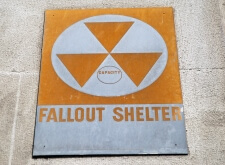The nervous wait for UK energy policy is over, that is one element at least, with the news that the European Commission has  judged that EDF Energy’s proposed £24.5bn Hinkley Point C nuclear plant does not break state aid rules.
judged that EDF Energy’s proposed £24.5bn Hinkley Point C nuclear plant does not break state aid rules.
The project, the first of its kind for two decades and due to start operations in 2023 will provide power for nearly six million homes, yet it has also faced controversy, not only from the EU’s state aid ruling but also from anti-subsidy, anti-nuclear and spending watchdogs. Indeed the ‘bill’ for the new plant has already increased £8bn from its original price tag of £24.5bn.
EDF Energy and their partners, in return for building the much-needed Hinkley Point C have been incentivised through the guaranteed receipt of £92.50 per MWH of the electricity it generates, a level more than double the current market rate. In nominal terms, this rises to £279 per MWH by 2058, the final year of the scheme. Unsurprisingly that has met with almost universal astonishment.
However although the headline incentive remains intact, the decision of the European Commission recognised the tempering of other costs within the project. EDF Energy are now required to pay an extra £1bn to the Treasury in return for securing the £10 billion of infrastructure guarantees being provided as well as being required to return a greater proportion of excess profits to energy consumers. This latter clause has increased from a 50:50 profit share over a 15% return to now be a 60:40 share over a 13.5% return. A change that was enough to persuade Joaquín Almunia, the European Commission’s Vice-President in charge of competition policy that state aid objections could be dropped,
Mr Almunia said:
“After the Commission’s intervention, the UK measures in favour of Hinkley Point nuclear power station have been significantly modified, limiting any distortions of competition in the single market.
“These modifications will also achieve significant savings for UK taxpayers.
“The commission notes that the project [internal rate of return] is below that typically granted to large generation projects in the energy sector.
“On this basis and after a thorough investigation, the Commission can now conclude that the support is compatible with EU state aid rules.”
Welcoming the conclusion, Ed Davey, the Secretary of State for Energy and Climate Change, said:
“This is an important next step on the road to Britain’s first new nuclear power station in a generation. While there is much work still to do before a final contract can be signed, the announcement is a boost to our efforts to ensure Britain has secure, affordable low-carbon electricity in the 2020s.”
This positive response was echoed by John Cridland, the CBI Director-General, who welcomed the news commenting:
“Hinkley should set the ball rolling for the UK’s nuclear new build programme, putting us on the right path to achieving a secure and sustainable energy mix.
“It represents a real opportunity for growth, with the potential to create tens of thousands of jobs for people – not just in the local community, but up and down the whole country.”
Unsurprisingly the announcement wasn’t uniformly welcomed with Andrea Carta, Greenpeace’s EU legal adviser, saying:
“This is a world-record sell-out to the nuclear industry at the expense of taxpayers and the environment.”
Whilst its true that the cost of the new build reactor is eye watering and the concessions made to fulfil EU state aid policy were limited, it is equally clear that the UK is desperately in need of new generation plant, whatever the source and right now, whatever the cost.
